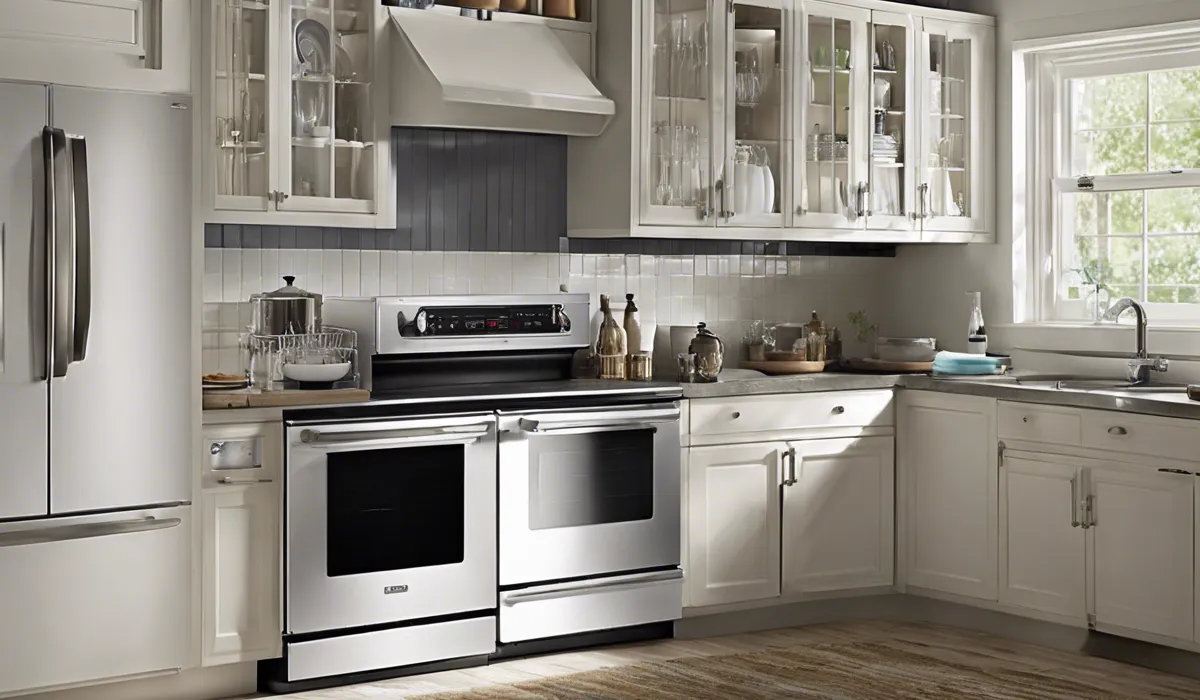Do Dishwashers Have to Be Hardwired? Unveiling the Truth
Dishwashers do not have to be hardwired; they can also be connected using a plug-in power cord. Local building codes and personal preference determine the installation method. Always ensure a dedicated circuit for safety.
Dishwasher Power Supply Options

Understanding Hardwiring
Hardwiring a dishwasher involves connecting the dishwasher directly to the electrical system of the home. This process requires the electrical wires to be connected to the dedicated circuit breaker in the electrical panel.
It is a more permanent solution and typically requires the expertise of a licensed electrician to ensure that the installation abides by the local electrical codes and safety standards.
Plug-In Dishwashers and Power Cords
An alternative to hardwiring is using a plug-in dishwasher. These dishwashers come with a power cord that simply plugs into a standard electrical outlet.
This option is often simpler and less invasive, as it does not require direct modification of the home’s electrical wiring. A dedicated circuit is still recommended to prevent overloading.
Deciding Between Hardwiring and Plug-In
Several factors influence whether to choose a hardwired or plug-in dishwasher. These include local building codes, which may mandate one method over the other, the specific dishwasher model, and personal preferences.
Some homeowners might prefer the streamlined look of a hardwired dishwasher, while others value the ease and convenience of a plug-in model.
Installation and Electrical Requirements for Dishwashers

Hardwiring Specifications
When hardwiring a dishwasher, adherence to electrical codes is paramount. The National Electrical Code (NEC) provides guidelines for the type of wire to use, such as a 12-gauge wire for a 20-amp circuit.
Secure connections and proper grounding are crucial to prevent electrical hazards. In areas where hardwiring is required, these standards must be met.
Setting Up a Plug-In Dishwasher
To install a plug-in dishwasher, an electrical outlet must be within reach of the dishwasher’s power cord, typically 6 feet.
The outlet should be a grounded type and, ideally, located in an adjacent cabinet to stay hidden and away from any moisture. It’s important to ensure that the circuit can handle the dishwasher’s power requirements without overloading.
Choosing Between Professional or DIY Installation
Deciding whether to hire an electrician or to install the dishwasher yourself depends on your comfort level with electrical work and understanding of the building codes.
For a hardwired dishwasher, it’s usually best to hire a professional. However, with the proper safety precautions and instructions, many homeowners can successfully set up a plug-in dishwasher on their own.
Pros and Cons of Hardwiring vs. Plug-In Dishwashers

Advantages of Hardwiring
Hardwiring a dishwasher can enhance safety by reducing the risk of disconnection or electrical shorts. The absence of visible cords also contributes to a cleaner kitchen design.
Compliance with local building codes is another important benefit, as it ensures that the installation meets all legal requirements and safety standards.
Plug-In Dishwasher Benefits
Plug-in dishwashers offer greater flexibility. They are easier to install, which can be a significant advantage for renters or those who move frequently.
This type of connection also simplifies the process of replacing or repairing the dishwasher, as it can be unplugged without the need for electrical work.
Homeowner Considerations
When choosing between a hardwired and plug-in dishwasher, homeowners should consider the long-term implications, such as the potential impact on resale value.
Aesthetics and personal preferences play a role, as well as the ease of maintaining or updating the dishwasher in the future.
FAQs About Dishwasher Installation
Do dishwashers need to be hardwired?
No, dishwashers do not have to be hardwired; they can also use a plug-in power cord.
Can I plug my dishwasher into a regular outlet?
Yes, dishwashers can be plugged into a regular outlet, provided it is a dedicated circuit for safety reasons.
What determines the installation method for a dishwasher?
Local building codes and personal preference typically determine whether a dishwasher is hardwired or connected with a plug-in power cord.
Is it safe to have a dishwasher on a non-dedicated circuit?
No, for safety reasons, it is important to have the dishwasher on a dedicated circuit to prevent overloading.
Do I need a professional to change my dishwasher from hardwired to a plug-in?
It is advisable to hire a professional electrician to ensure the conversion is done safely and in accordance with local electrical codes.
Final Thoughts
Dishwashers offer flexibility in installation, allowing for either hardwiring or the use of a plug-in power cord.
The choice between these methods is influenced by local building codes and homeowner preferences. Regardless of the chosen method, it is imperative to dedicate a separate electrical circuit to the dishwasher to ensure safe operation.
Useful Resources
- https://www.lni.wa.gov/licensing-permits/electrical/electrical-basics-for-home-business-owners/appliance-installation-and-repair
- https://www.tn.gov/content/dam/tn/revenue/documents/rulings/sales/20-11.pdf
- https://sanbruno.ca.gov/DocumentCenter/View/4177/2022-Kitchen-Bath-and-Laundry-Remodel-Requirements





